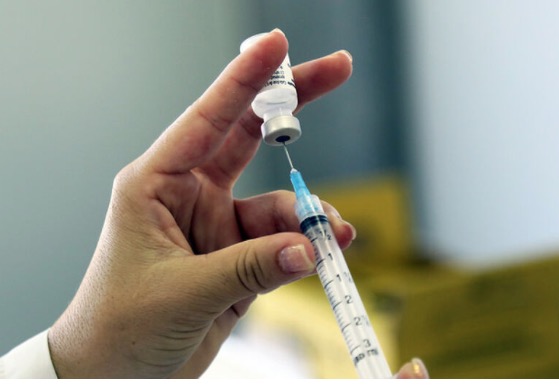CommentsHEALTH - The White House will announce today it is zeroing in on the population most at risk currently of contracting and spreading the monkeypox virus: men who have sex with men.
A pilot program rolls out this weekend at Charlotte Pride.
The Biden administration’s deputy director for monkeypox response, Dr. Demetre Daskalakis, described the new effort to LGBTQ Nation ahead of the White House announcement.
Daskalakis says the pilot takes a two-pronged approach: “Education and outreach, as well as vaccination.”
That starts with bumping up the supply of the vaccine for local health jurisdictions where large LGBTQ events are happening. The program sets aside 50,000 doses of vaccine from the Strategic National Stockpile that jurisdictions can request on top of their existing vaccine allocations and supply.
The Administration is working with North Carolina, Georgia, and Louisiana health departments to determine dose numbers in preparation for upcoming events including Charlotte Pride this weekend, and Atlanta Black Pride and Southern Decadence in New Orleans over Labor Day weekend.
At Charlotte Pride, Daskalakis says, “we’re going to be providing them 2000 additional doses on top of what they’re already allocated specifically for this event.”
State and local health departments are responsible for getting vaccines to where they’ll be administered.
To get doses in arms, “Charlotte is looking at specific events associated with Pride that are going to include, in effect, what will look like vaccine pop-ups, where people entering the event or going to the event will be able to acquire a vaccine.”
The second part of the pilot focuses on education and outreach, along with in-person technical assistance.
“With public health being really local, we’re going to make sure that we provide them what they need in terms of education, outreach materials and any technical assistance to be able to work on the ground to make sure that we’re providing folks with culturally appropriate information about how to prevent monkeypox, and also awareness of the disease.”
“Part of that package is definitely really clear advice around safer sex and safer gatherings. To make sure that it’s extraordinarily clear, given what we know about the data, that this is affecting gay, bisexual and other men who have sex with men, and that a lot of the transmission has been in the context of sex and sexual activity.”
The pilot also provides guidance to local jurisdictions to develop testing strategies and tools for information-gathering from event participants.
Two weeks ago, New York and California were among several states to declare monkeypox a public health emergency.
CDC data as of August 16 indicates 12,689 total confirmed monkeypox cases in the U.S., with New York, California, Texas, Florida, Georgia, and Illinois topping the list of highest infection rates.
Seven-day averages show the number of daily reported infections skyrocketed from 45 in the week ending July 11, to 528 the week ending August 10, when 1391 cases were reported on a single day.
Federal officials have allocated 1.1 million doses of the Jynneos vaccine to states and say they’ve shipped about 600,000 of those.
Clark Simon, president of Charlotte Pride, welcomed the administration’s new initiative: “The more vaccines the better.”
But with a caveat.
“I know health departments need to state where this specific virus is predominantly being seen, the pronouncement of it. But just to clarify, in terms of language and messaging, this is not an STI [sexually transmitted infection]. It is not a gay disease. It is a community-spread disease. And in this instance, showcases itself predominantly in men who have sex with men. But we’re also seeing instances in which there are children getting it at daycares and things like that. Much like COVID, it’s about community spread.”
Daskalakis was sensitive to the messaging.
“Monkeypox is a virus, it’s not a sentient being,” Daskalakis said. “It doesn’t differentiate between people based on sexual orientation or gender identity. And so making sure that we’re serving the folks who are in populations that are overrepresented in the outbreak, like gay and bisexual men, and men who have sex with men, is really important, while also making sure that there’s an awareness outside. Infections don’t heed orders, they don’t heed sexual networks or social networks. So being vigilant, making sure surveillance is really good, and that providers are tuned in is the most important thing right now.”
Atlanta Black Pride president Terence Stewart, next in line for the pilot program, added to Simon’s pandemic analogy.
“It is like COVID. We didn’t think it would either hit the shores of the United States or would be coming in as fast as it was. Because you want to vaccinate as many people as possible, but you also don’t want to scare people, right? So it’s a lot going on.”
(Greg Owen is a contributor to LGBTQ Nation where this story was featured.)















